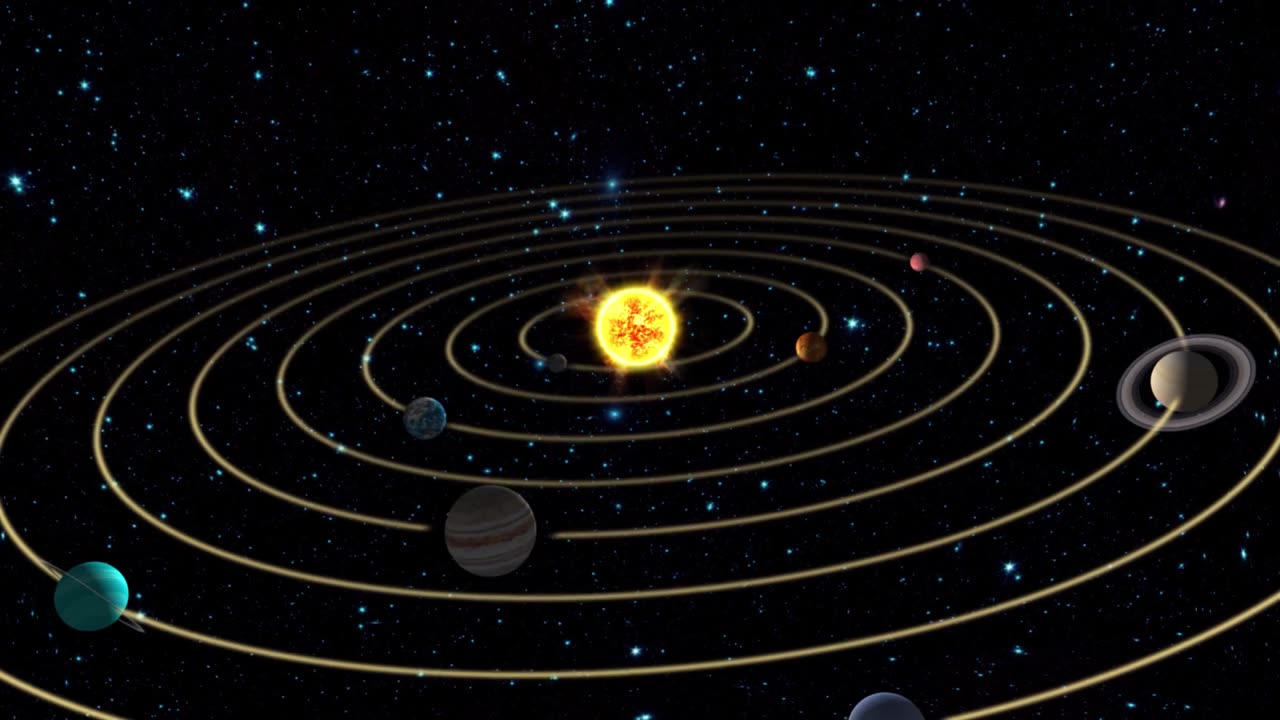Premium Only Content

How Do Planets Get Their Names
Discovering the origin of planetary names is a journey that uncovers a fascinating blend of mythology and modernity. The captivating tale begins with a nod to ancient civilizations, as the planets, save for our own cherished Earth, were bestowed names inspired by the mighty deities of Greek and Roman mythology. These celestial monikers evoke the grandeur and wonder of the cosmos, aligning the distant orbs with the divine figures that once commanded reverence on Earth.
However, the process of naming celestial bodies has evolved over time. In our contemporary era, this noble task has been entrusted to the International Astronomical Union (IAU), a preeminent organization acclaimed globally as the ultimate authority on the nomenclature of celestial objects and their surface features. The IAU's role in modern space nomenclature is pivotal, providing a harmonious and internationally recognized framework for labeling the farthest reaches of our universe.
Guiding us through this cosmic nomenclature odyssey is Dr. Henry Throop, a distinguished NASA scientist who delves into the intricacies of naming objects in space. With erudition and insight, Dr. Throop elucidates the rationale behind the IAU's decisions, offering a glimpse into the meticulous considerations that shape the titles of astronomical wonders. His exposition brings to light the balance between tradition and innovation, mythology and science, that underlies the naming of planets and other celestial entities.
In the grand tapestry of cosmic exploration, understanding the process by which planets acquire their names enriches our appreciation for the intersection of human history, cultural heritage, and the quest to comprehend the cosmos. As we gaze upon the night sky, the names of these distant worlds remind us of the enduring connection between ancient myths and the modern marvels of space exploration, all under the stewardship of the venerable International Astronomical Union.
-
 LIVE
LIVE
Meisters of Madness
8 hours agoElden Ring - Erdtree Wrap-up
222 watching -
 9:22:21
9:22:21
Bitcoin Magazine
2 days agoThe Bitcoin Conference 2025 | Day 2 Livestream
179K26 -
 LIVE
LIVE
Eternal_Spartan
3 hours agoLive - Eternal_Spartan | Doom: The Dark Ages | Come Join the Best Rumble Community There Is!!
242 watching -
 9:27:07
9:27:07
Dr Disrespect
13 hours ago🔴LIVE - DR DISRESPECT - BATTLEFRONT 2 - TRIPLE XP MADNESS
136K14 -
 1:24:28
1:24:28
Joker Effect
4 hours agoHUGE ANNOUNCEMENT come listen
28.5K3 -
 2:02:34
2:02:34
Melonie Mac
5 hours agoGo Boom Live Ep 49!
37.1K12 -
 1:23:57
1:23:57
I_Came_With_Fire_Podcast
4 hours agoIn Politics, A Scalpel Finishes What A Hammer Starts
13.3K1 -
 9:28:58
9:28:58
Spartan (Pro Halo esports Player)
13 hours agoBack from Dreamhack
25.5K1 -
 4:15:16
4:15:16
IcyFPS
5 hours agoSplitgate 2 Tourney Prep 🔥 | EGL 1v1 Showdown Tomorrow!
27.2K2 -
 5:43
5:43
The Shannon Joy Show
8 hours ago💪 Angry Moms vs. D.C. — They’re Awake & Taking Back Power!
33.8K5